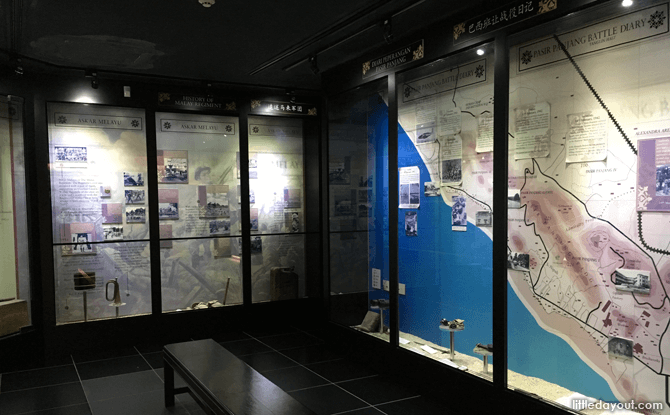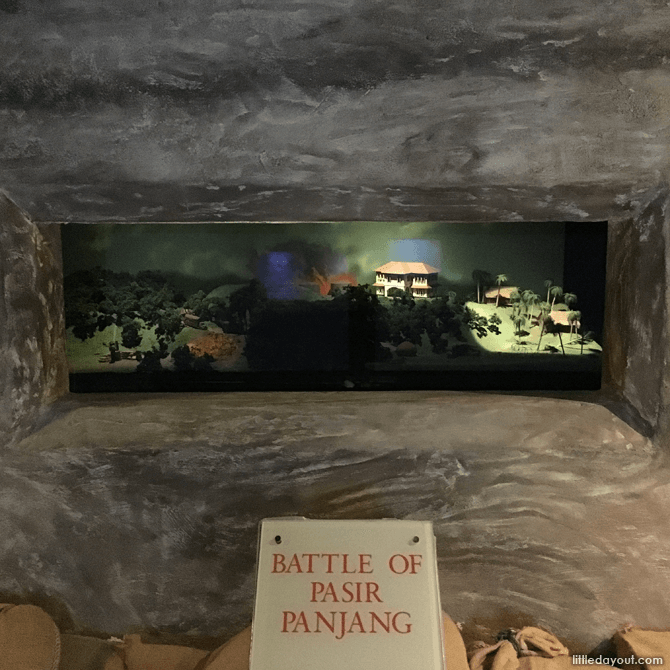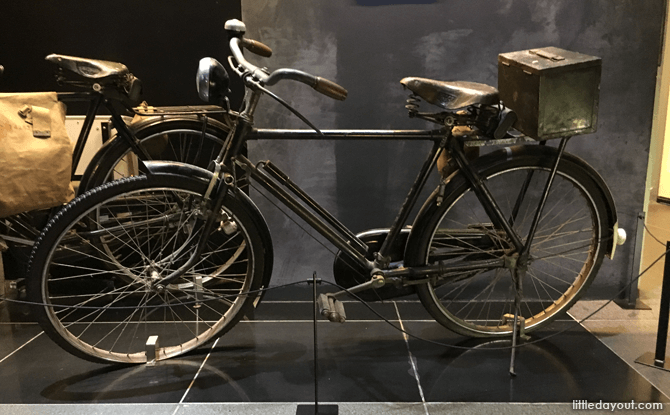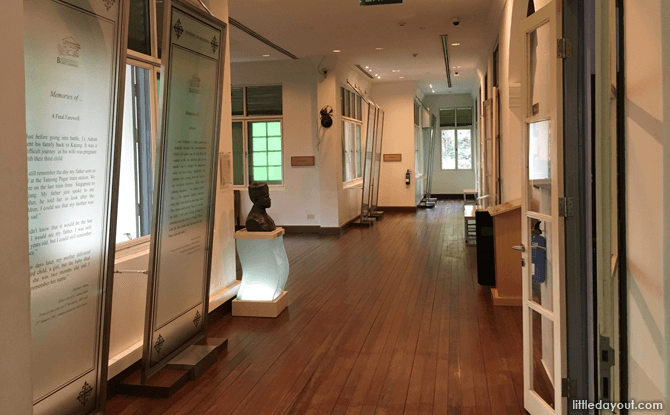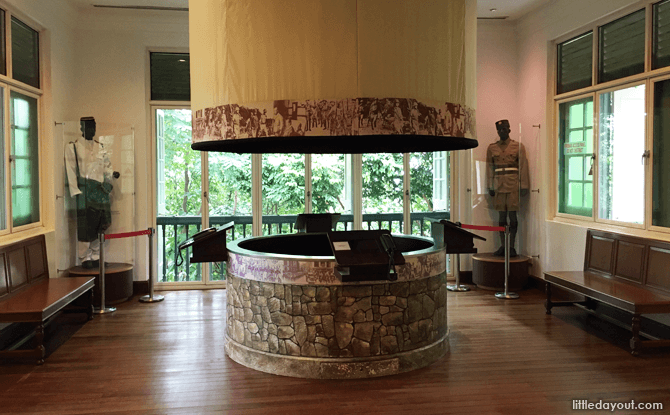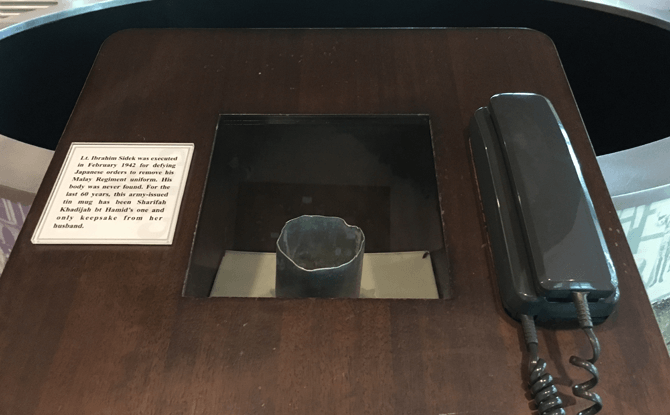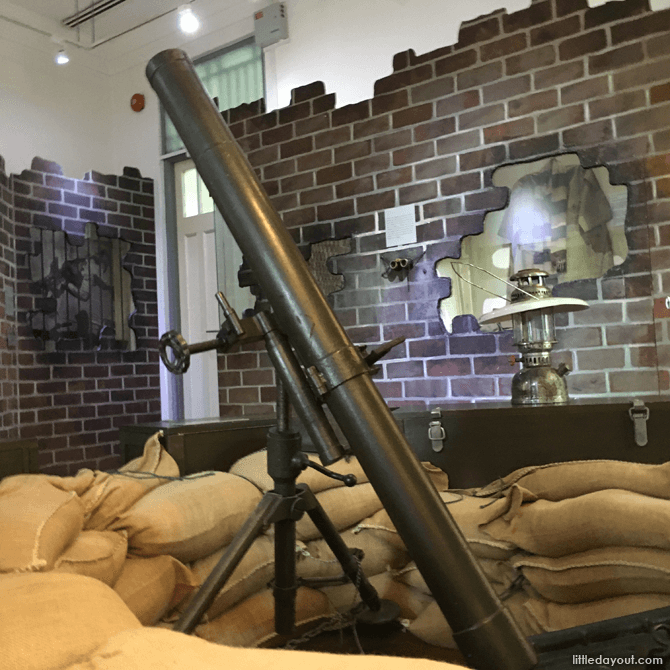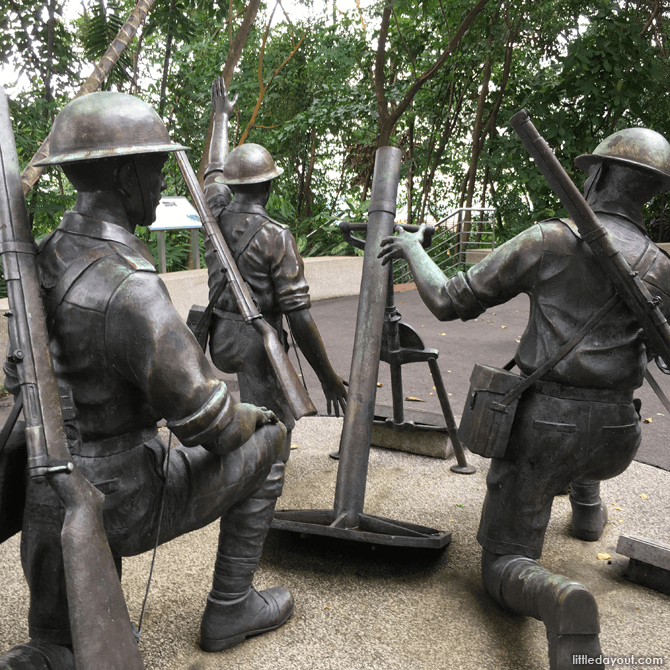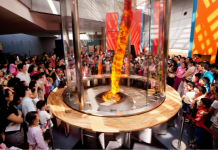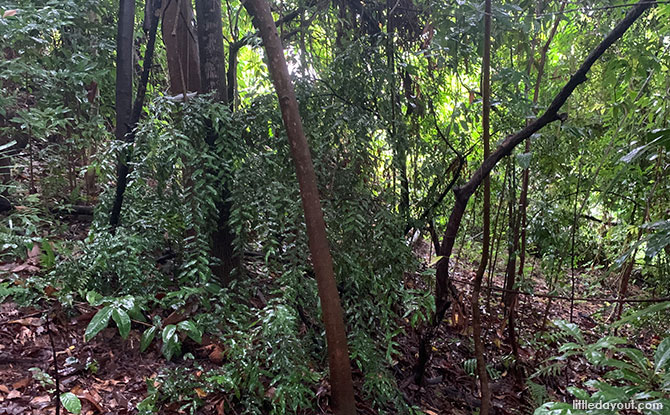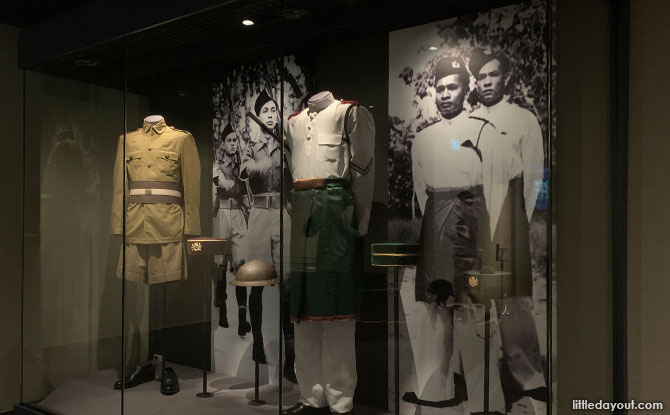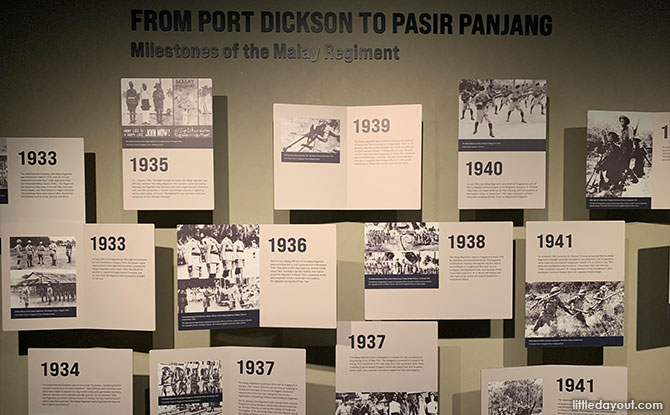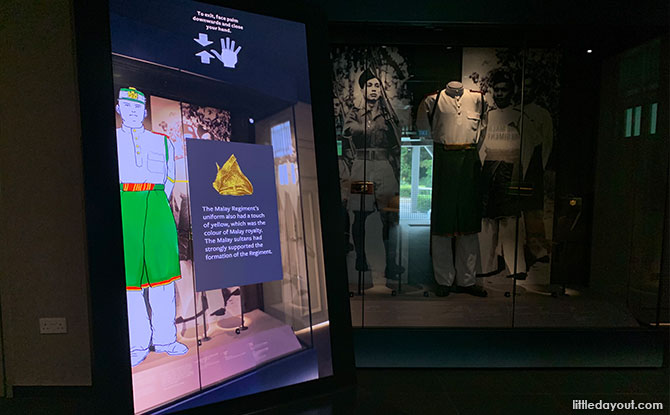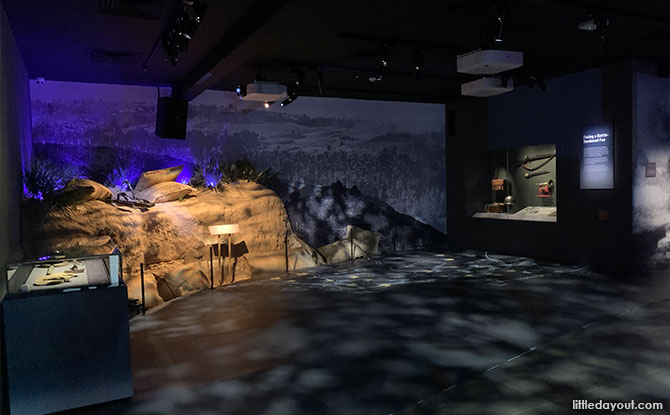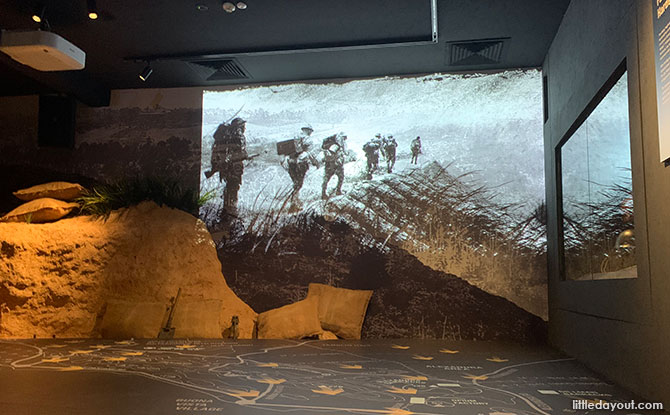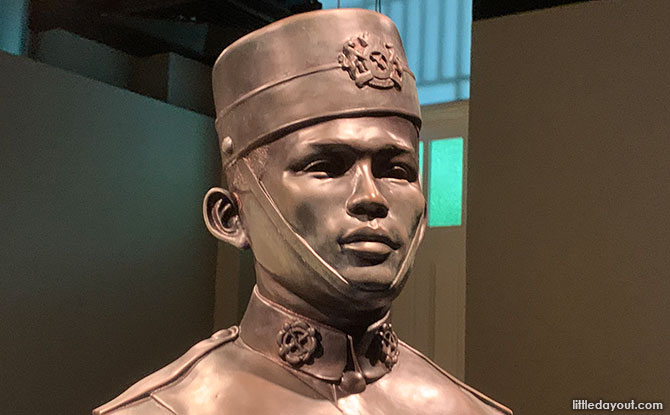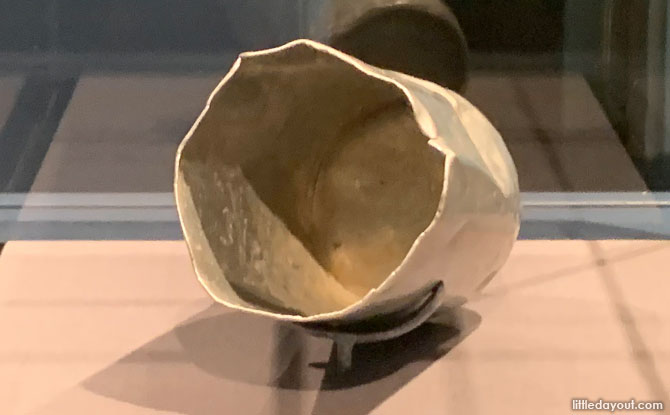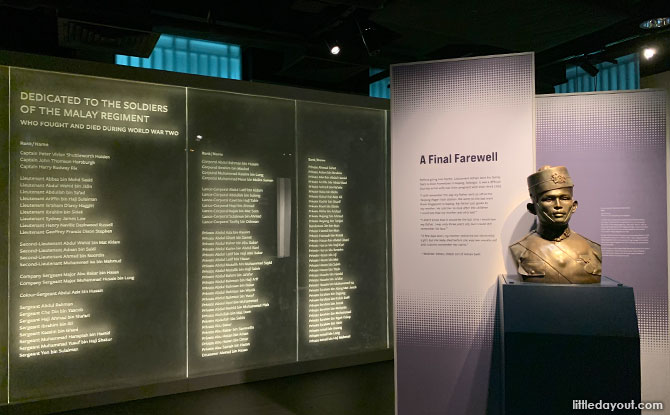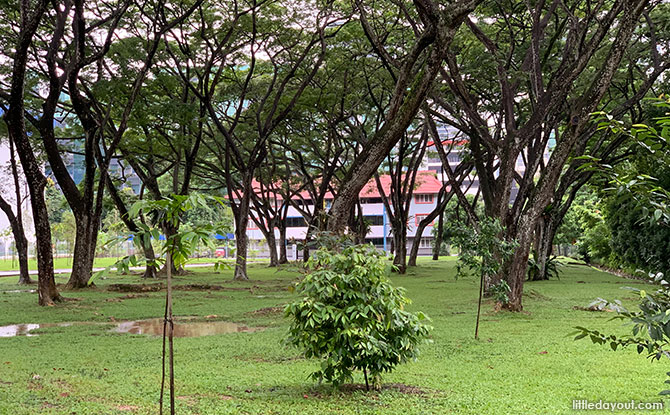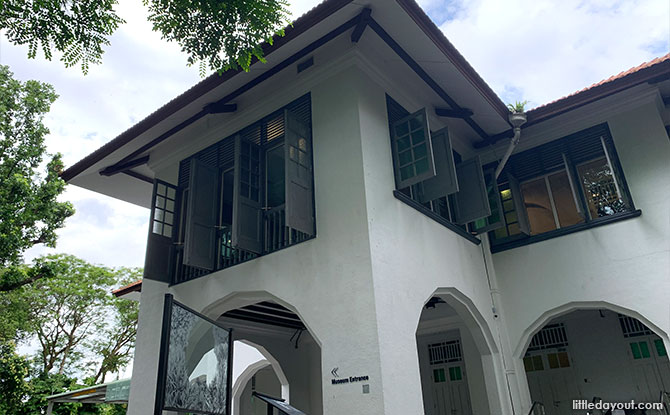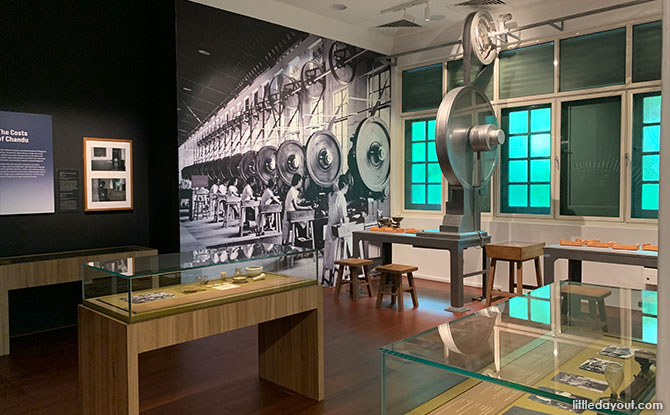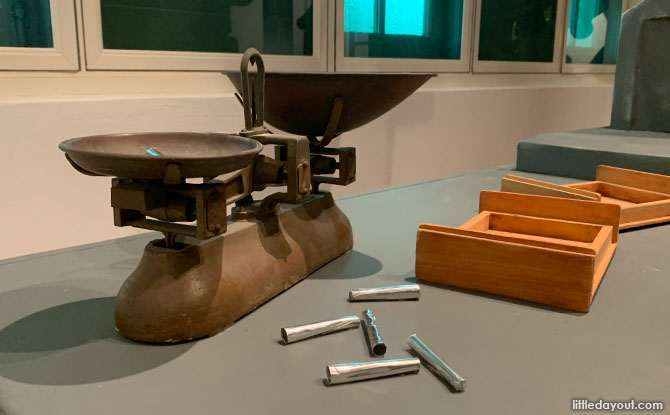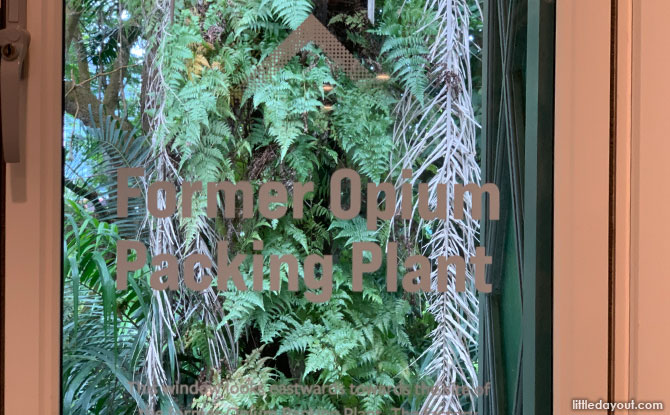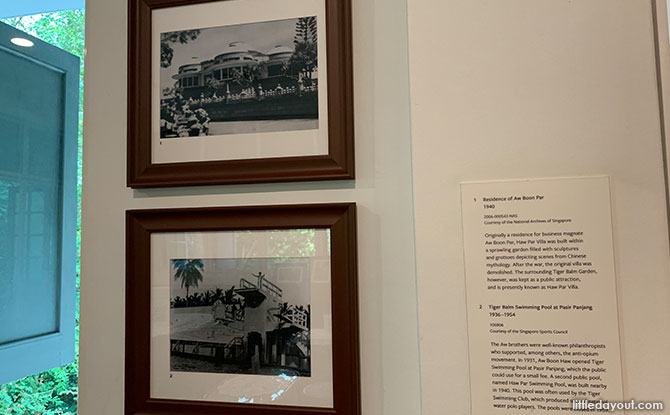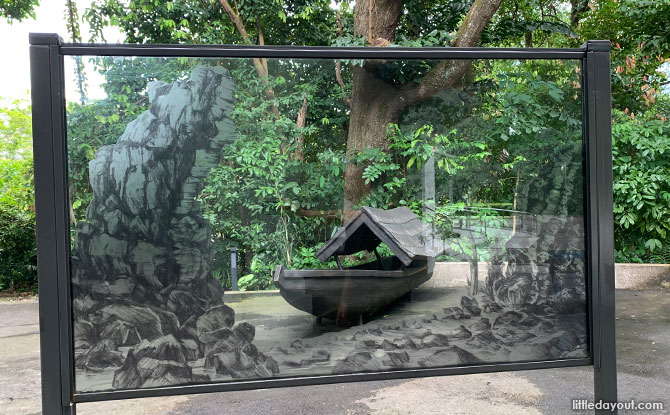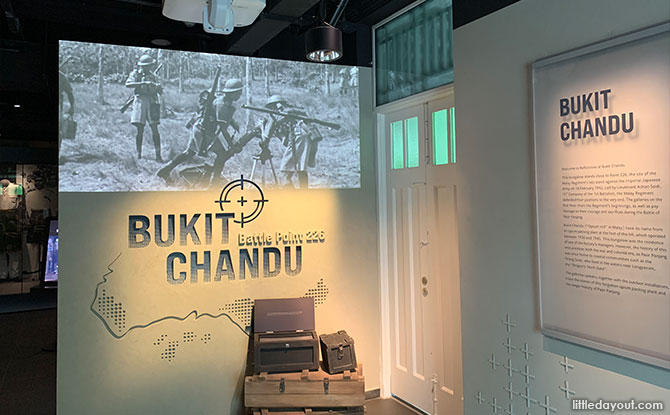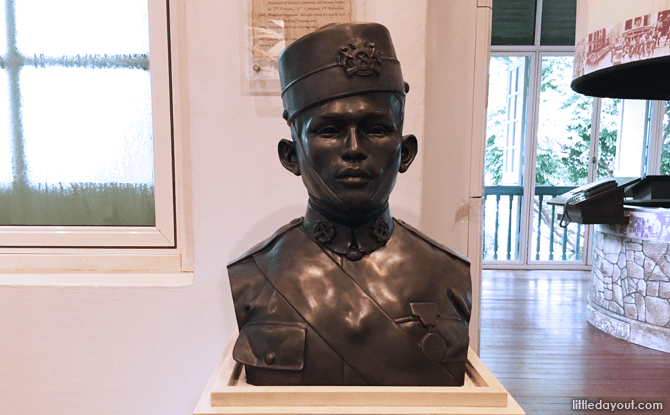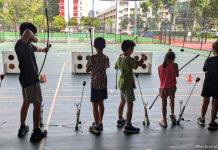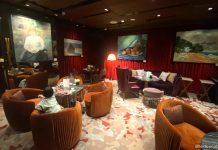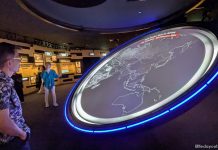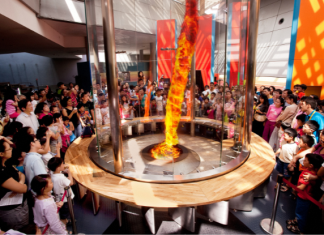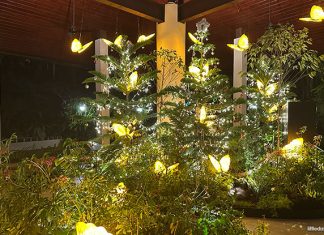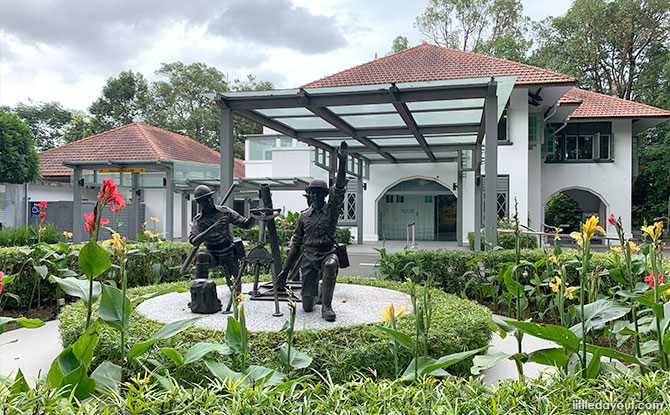
Sitting along the top of Pepys Road, Reflections at Bukit Chandu is a two-storey museum housed within a colonial bungalow that recounts the events that took place during the World War II Battle of Pasir Panjang and the deeds of the brave men who fought there.
Set amidst the lush greenery of Kent Ridge Park and along the Southern Ridges trail, Reflections at Bukit Chandu first opened its doors on 15 February 2002. Most recently, it was given a refresh in 2021 before reopening to the public on 9 September 2021 with exhibits that include a wider history of the bungalow.
Reflections at Bukit Chandu: Remembering the Events on Pasir Panjang Ridge during WWII
To gain the most out of a visit to the Reflections at Bukit Chandu interpretive, it is helpful to have a background to the events that took place in the vicinity during World War II.
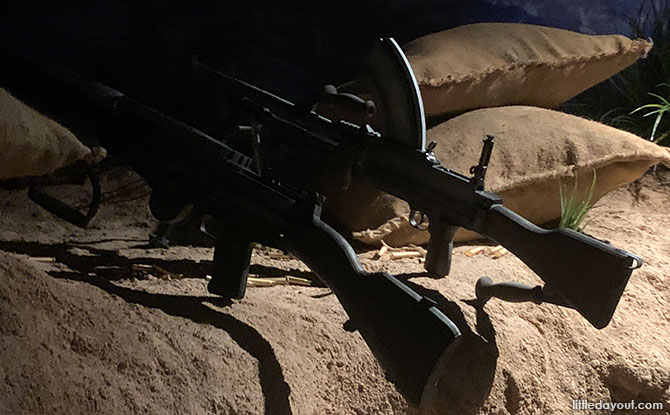
CARNIVAL OF CHRISTMAS CHEER: Celebrate and Win at Plantation Plaza and Northshore Plaza!
SNOW MUCH TO CELEBRATE: Christmas Fun at The Centrepoint
In February 1942, the Malay Regiment was tasked to defend the Western sector of Singapore. As invading forces pushed towards the centre of the island, the regiment was forced back on to Pasir Panjang Ridge (now Kent Ridge Park). They were forced back from position to position, eventually taking up defences at Hill 225, where Reflections at Bukit Chandu is located.
At that time, the defence of the ridge was critical as beyond lay the army’s ammunition and supply depots. It was imperative to stop these resources from falling into enemy hands.
It was on the slopes of the hill, also known as Opium Hill, where the Malay Regiment made their last stand. The stubbornness of the soldiers defending the hill led to some of the fiercest fighting ever seen on Singapore soil.
Out of the 1,400 officers and men of the Malay Regiment, only 600 managed to escape.
The Story of the Malay Regiment
As you step into Reflections at Bukit Chandu, you will get to know the story of the Malay Regiment. The first floor of the museum is dedicated to telling the story of the Regiment. This is presented across three galleries and a multimedia presentation.
At the first gallery, you will get an introduction to the Malay Regiment.
Formed in Port Dickson in 1933, it was initially intended to an experimental regiment, organised under the command of British officers. The regiment’s motto was Ta’at Setia – Faithful and True.
Here, you can can view their field and ceremonial dress, as well as learn about the equipment they were given.
There are interactive panels that allow visitors to learn more about the regiment.
Battle of Pasir Panjang
The next gallery takes you to the events that took place during the Battle of Pasir Panjang. Through a series of multimedia projections, you will be taken on a journey through the events that unfolded on 13 and 14 February 1942.
The multimedia presentation runs for 5 minutes with an interval every 10 minutes. The presentation provides an overview of what took place at Bukit Chandu.
Last Post
The final gallery on the ground floor is dedicated to the remembrance of those who gave their lives in the defence of Singapore.
One personal and moving story that is recounted at Reflections at Bukit Chandu is that of Lieutenant Adnan bin Saidi.
Born in Selangor in 1915, he joined the Malay Regiment when he was 18. As a career soldier, he rose through the ranks and became a commissioned officer. He was the leader of 7th Platoon “C” Company of the Malay Regiment that was defending the Pasir Panjang area.
Even though heavily outnumbered, he valiantly led the defence of Pasir Panjang Ridge. The fierce resistance included hand-to-hand fighting but eventually, the regiment was overrun.
For his role in the battle, according to some accounts, Lieutenant Adnan was mercilessly executed. He was only 27.
Another moving artefact on display at the final gallery that you should pause to have a look at is the army-issued mug that belonged to Lt. Ibrahim Sidek.
He had escaped from the battle but was later captured by the Japanese. He refused to remove his Malay Regiment uniform by his captors and when he refused, they executed him. The mug is his widow’s only keepsake of him as his body was never found.
The names of those from the regiment who made the ultimate sacrifice are also inscribed on the wall.
Opium Hill & Opium Processing Plant
The name Bukit Chandu means Opium Hill in Malay. It is a reference to a British opium processing plant that stood at the base of the hill from 1930 to 1945. During the war years, it was run by the Japanese.
The site the opium processing plant is now an open space.
For those who are curious, the building where the Reflections at Bukit Chandu interpretive centre is housed was originally the residence of the senior British officers in charge of opium plant.
It was used to store supplies during the Battle of Singapore and was not part of the Battle of Pasir Panjang itself.
The second floor gallery at Reflections at Bukit Chandu sheds more light on the rise and fall of the opium industry in Singapore.
A mock-up of the opium plant also provides a look back into the past at how the drug was processed.
Pasir Panjang of the Past
On the second floor, there are also signs on the windows that allude to what Pasir Panjang was like in the past. For example, out of the south-facing window, there is an inscription that remembers long ya men or the Dragon’s Tooth that once stood at the entrance of Keppel Harbour.
There are also picture and write-ups about popular activities at Pasir Panjang, including some prominent buildings such as Haw Par Villa.
On the grounds of Reflections at Bukit Chandu, there are also sculptures that reflect on history of Pasir Panjang.
Place for Reflection
Reflections at Bukit Chandu’s exhibition space is relatively small. The building is located in quite a remote location and so you may be wondering if it is worth traveling out to pay it a visit.
The museum can be done in less than half an hour. However, that is also what we like about Reflections at Bukit Chandu – its small size makes it very focused and easy to go through.
It is also located “in situ” where the battle took place. Furthermore, personal stories, such as those of Lieutenant Adnan, make a visit to Reflections at Bukit Chandu a contemplative experience.
Reflections at Bukit Chandu can be reached via Pepys Road, off West Coast Highway, or on foot from Kent Ridge Park or HortPark.
After a visit to Reflections at Bukit Chandu, you can make your way down to visit HortPark.
Where: 31-K Pepys Road, Singapore 118458
The closest MRT station is Pasir Panjang (CC26).
Opening hours:
9.30 am to 5 pm, Tuesdays to Sundays
Closed every Monday except Public Holidays
Last admission at 4.30 pm
Admission is free for Singapore Citizens & Permanent Residents.
For tourists and foreign residents, Standard Adult admission is $5. There is a concession rate for Seniors, Students and Special Access.
Website: Reflections at Bukit Chandu
From the Archives: Pre-2021 Reflections at Bukit Chandu
Here are some images of Reflections at Bukit Chandu before the 2021 renovations.
